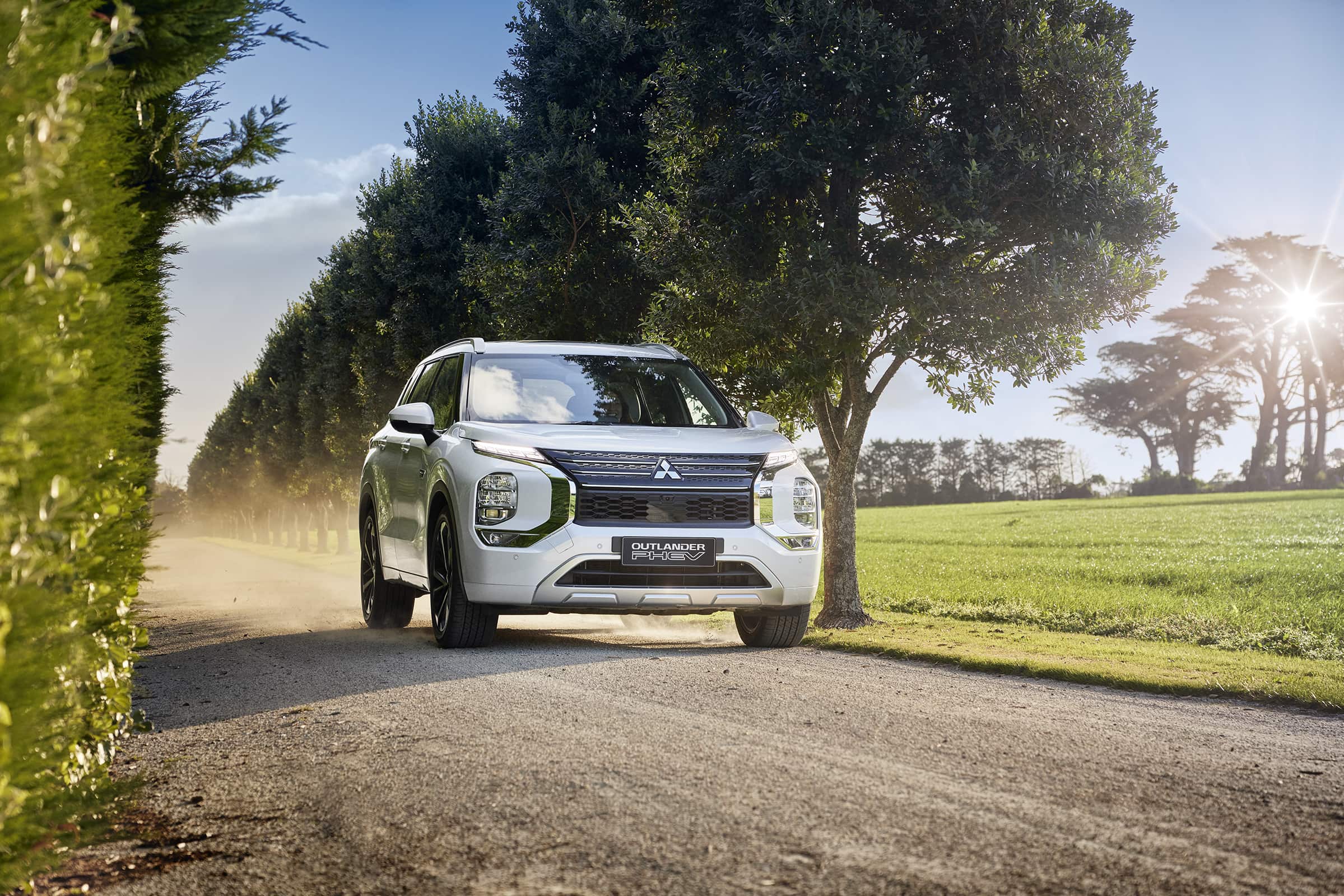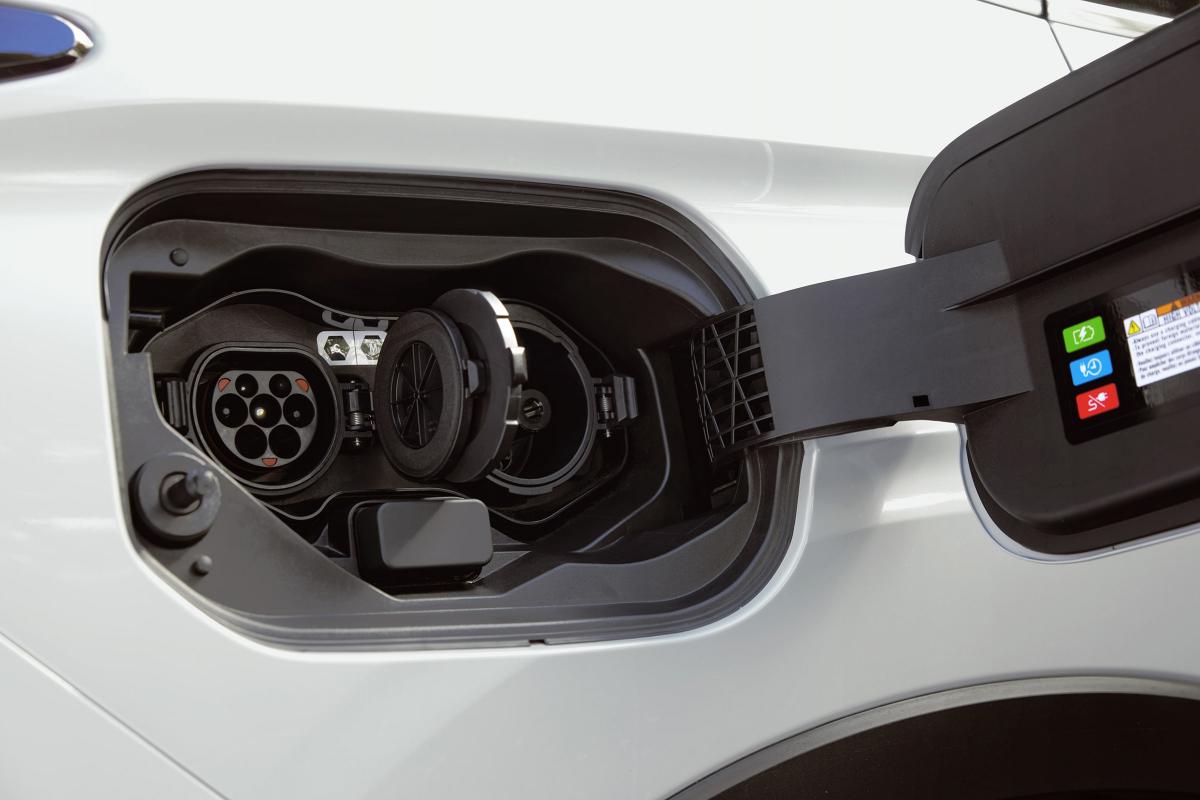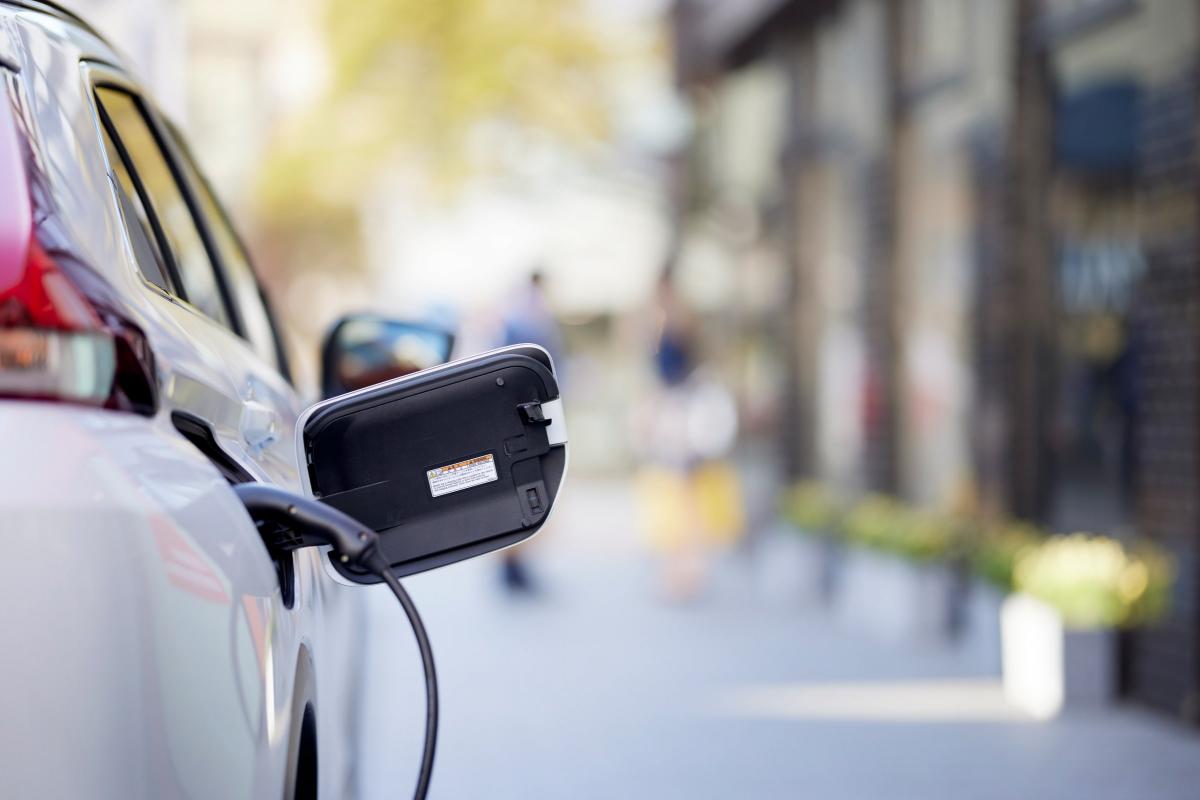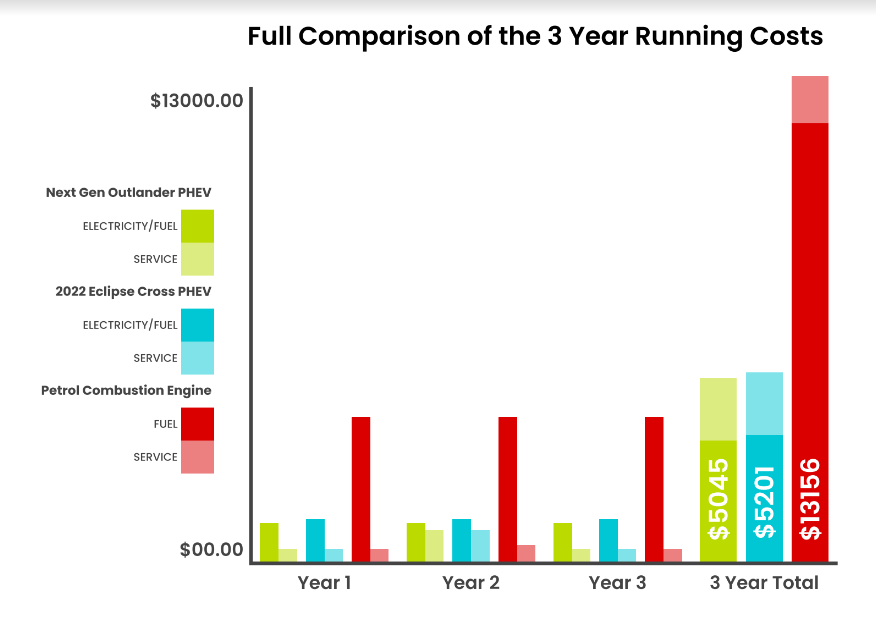
The electric vehicle revolution is here. Every year that goes by, we are witnessing a higher adoption curve of transportation that takes advantage of electric vehicle technology. Whether these vehicles are fully electric, classic hybrids or plug-in electric hybrid vehicles, there's one undeniable fact - we are at the point where choosing electric is no longer a compromise on performance. It is all too clear now that the momentum of electric vehicles shows no signs of slowing down.
For most people, the current electric vehicle technology that would blend the most seamlessly into their lives is that of a plug-in electric hybrid vehicle or PHEV. This combines an electric-powered vehicle with a traditional combustion engine, only ever relying on fuel for extra power or extended range. It is the best of both worlds.
However, the caveat to this exciting evolution of technology is something that crops up every time we are in the presence of a major social transition - people's resistance to change. It's only natural that people have questions when it comes to any major changes they face, and moving away from their faithful combustion engines has been no exception. The electric vehicle market, and by extension the PHEV market, has been challenged every step of the way in regards to its feasibility in people's everyday lives.
The initial objection was "range anxiety". Would these electric vehicles be able to take me as far as my petrol or diesel car? The answer, quite simply, is yes. Electric vehicles have come a long way in the last few years and now boast ranges that are on par with their fossil fuel counterparts. This is particularly true in the PHEV sector, with the Next-Gen Mitsubishi Outlander PHEV boasting an impressive EV range of up to 84km for day-to-day driving and a combined range of over 800km, more than enough to take you almost anywhere in our country.
The next objection was "refuelling" time. It takes much longer to charge an electric car than it does to refuel a petrol or diesel car. This is true, but it's not as big of a deal as you might think. Firstly, many people charge their cars overnight while they are sleeping, so it's not really an inconvenience. Secondly, there is an increasing number of fast-charging stations popping up all over the country, so if you are out and about and need a quick top-up, you can usually find a station nearby, with a big push from the New Zealand government to continue to expand the charging infrastructure. But even on top of this, PHEVs can take advantage of our existing fuel station infrastructure, ensuring that you never run out of power no matter how precarious the situation is.
The final objection we will discuss here is cost. It is no secret that PHEVs are more expensive than their petrol or diesel counterparts. The initial outlay for a PHEV is higher, but is this cost justified long-term?

The first saving most people are aware of is the cost of fuel. According to Stats NZ in 2019, the average Kiwi spent $48.50 per week on fuel. This equated to the average New Zealander spending upwards of $2500 a year on fuel. However, we are all well aware that the price of petrol has soared since then, with the average cost of fuel jumping from an average of $2.13 per litre to a record setting $3.34 per litre. This means that those 22.76L per week that kiwis were paying $48.50 in 2019 has jumped to $76.
That increases the yearly average a New Zealander spends on fuel from $2,522 to an eye watering $3,952.
Depending on your driving habits in a PHEV, this can be drastically reduced. Because PHEVs are designed to spend most of their time driving in EV mode, relying almost exclusively on their electrically powered motors, their reliance on fuel is exponentially reduced. For example, the Next Gen Mitsubishi Outlander PHEV has an EV range of up to 84km, while the 2022 Mitsubishi Eclipse Cross PHEV has an EV range of up to 55km. To put this in perspective, the average Kiwi commutes approximately 35km a day, meaning both PHEV models are more than equipped to provide fuel-free driving for the average kiwis driving needs. While a PHEV does require fuel, it is a small amount when compared to a traditional combustion vehicle. As it is recommended to only quarter fill your tank to reduce weight and increase EV range, both EVs will require about 10-15L every 3 or so months if the majority of your driving is in EV mode. If you have not used 10L of fuel in this time frame, the EV will alert you that it will be running its engine until 10L have been used or you top up another 10L. This means that you'll expect to use at least around 40 L of fuel a year. At time of publishing, fuel costs for a PHEV that is driven mainly in EV mode will cost approximately $133.60 per year…. A far cry from $3,952.

But obviously the missing piece of this puzzle is electricity, the magic behind the PHEV. A PHEV’s range is mainly determined by the size of their Lithium-ion drive battery which is measured in kilowatt-hours, or kWh. The Next Gen Mitsubishi Outlander PHEV has a 20kWh battery to provide an EV range of approximately 84km while the 2022 Mitsubishi Eclipse Cross’s 13.8 kWh battery provides an EV range of approximately 55km. While the price of electricity does fluctuate, a good faith estimate would be $0.30 per kWh.This means that it would cost $6 to fully charge the Outlander PHEV to drive ~80km and $4.14 to charge the Eclipse Cross PHEV to drive ~55km.
But how does that compare overall? While it can feel like comparing apples to oranges, the final breakdown in costs features quite a significant change when added all together. While a petrol vehicle’s fuel economy varies from vehicle to vehicle, we will use a mid range of 9L//100km, a comparable sized SUV to the Outlander. With the average fuel consumption in accordance to the figures outlined above (22.76L per week), the distance travelled would be 252km. To travel 252km in an Outlander PHEV, it would require 3.15 full charges. At $6 per a full charge, this would equate to $18.90 per week to travel 252km. This adds to $982 a year in electricity.
While the Eclipse Cross PHEV has a smaller battery and therefore smaller EV range, the cost to run one is incredibly similar to the Outlander PHEV when compared to similar vehicles in its class. When compared to a petrol car with a fuel economy of 8.6L/100km, the Eclipse Cross would require to be charged 4.6 times to cover the 265km allowable by this 22.76L average. This would mean the 2022 Eclipse Cross PHEV would cost $19.90 per week in electricity, or $1034.80 per year.
As we will soon cover servicing costs, let's extrapolate these figures over 3 years. The Next Gen Outlander PHEV costs approximately $982 a year in electricity, with an additional $133 for the 40L of fuel required. This means that the Outlander PHEV has a $1,115 yearly cost, or $3,345 over 3 years. The 2022 Eclipse Cross PHEV costs $1,034, and with the $133 of fuel added into the equation comes out as $1,167 per year or $3,501 over 3 years.
How does this stack up against a petrol vehicle? With the average kiwi spending $3,592 on fuel per a year, this means that over a 3 year period they spend $11,856. This means that on fuel alone, the Next Gen Outlander PHEV and Eclipse Cross PHEV are 72% and 71% cheaper to run than their fossil fuel counterparts.
But fuel is not the only factor when it comes to the long term running costs of a car - what about the cost to service and maintain a PHEV?

But what about the long-term running costs? Indeed with PHEVs being a newer technology that is far more complex than a traditional combustion engine, they are far more expensive to service? Well, you might be surprised.
At Simon Lucas Mitsubishi, we are in a unique position to understand the associated service costs. As a dealer that not only sells PHEVs and their directly comparable petrol and diesel counterparts, we also provide servicing for these vehicles.
Year 1: The initial service price is identical between petrol and PHEV models, with an average service cost of $400. Diesel variations 1-year are the most expensive, costing $475.
Year 2: the second year service cost on a PHEV is the highest of the 3 engine types, coming in at $900, with diesel being marginally behind at $850, while petrol is $500.
Year 3: in its third year of service, PHEV and petrol vehicles once again share the lowest cost of $400, while diesel engines once again cost the most at $475.
While all vehicles see a jump in service price in their second year, the difference between PHEV, petrol and diesel is smaller than most assume, especially given how new PHEV technology is. The total costs for servicing PHEVs, petrol and diesel engines over 3 years come to $1700, $1300 and $1800 respectively, placing PHEVs in the middle between their fossil fuel counterparts.
While that is our data from Simon Lucas Mitsubishi at the date of publishing this article, a 2020 whitepaper from the consumer advocacy organisation behind Consumer Reports found that on average EV, hybrid and PHEV drivers were saving 50% on their lifetime repair and maintenance costs when compared to equivalent petrol engine drivers.
There is a lot of talk about how expensive a PHEVs battery is, and what the cost is to replace it. Thankfully, for most this is a factor they will never have to worry about as the current technology is designed so that the battery lasts the lifetime of the car. In fact, Mitsubishi's Diamond Advantage warranty, the best new car warranty available in New Zealand that offers a 10-year (or 160,000km) Powertrain and 5 year (or 130,000km) new vehicle warranty, also includes an 8-year warranty specific to the lithium-ion battery in Mitsubishi's latest range of PHEVs.
So how does all this information stack up? Below is a Graph comparing the overall costs in fuel, electricity and servicing Mitsubishi’s EV range compared to that of a traditional combustion engine:

As you can see, the overall savings over a three year period are significant. The running cost of both the Next Gen Outlander PHEV and Eclipse Cross PHEV save you approximately 60% over this period, more than offsetting the higher second year service cost and also a significant part of the higher sticker price, especially those who take advantage of the Clean Car Discount which will be covered in our conclusion.
In conclusion, the higher upfront cost of a PHEV is more than offset by significant long-term running cost savings. The saving on fuel, comparable service and maintenance costs, and uncompromising performance of PHEVs make them a more than viable choice even at their higher initial cost. Couple this with the current Clean Car Discount Scheme that provides a rebate on new low-emission vehicles and purchasing a PHEV ($5750 for Eclipse Cross PHEV and Outlander PHEV) just makes sense. When you factor in additional things like Mitsubishi's leading Diamond Advantage warranty, it's easy to see how a PHEV can be not only more economical but also more reliable in the long run.
With a focus on providing an outstanding customer experience, Simon Lucas Mitsubishi is dedicated to helping you find the right car for your needs. If you're interested in learning more about our range of PHEVs or any of our other vehicles, contact the team at Simon Lucas Mitsubishi today!
We would love to hear from you, please let us know your new Mitsubishi vehicle requirements and any other relevant details. One of our Sales Team members will contact you shortly.
Mon - Fri 8:30am - 5:30pm
Saturday 8:30am - 5:00pm
Sunday 10:00am - 4:00pm